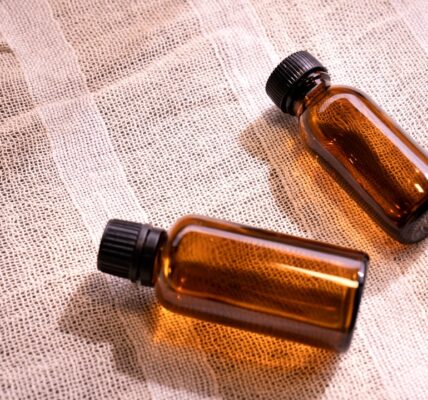Hair loss is a common concern affecting many individuals, with various underlying causes. Genetic factors play a significant role, particularly in androgenetic alopecia, also known as male or female pattern baldness. This hereditary condition can begin as early as adolescence and is the most prevalent form of hair loss.
Hormonal imbalances are another major contributor to hair loss. Conditions such as polycystic ovary syndrome (PCOS) and thyroid disorders can disrupt the normal hair growth cycle, resulting in thinning and excessive shedding. Additionally, certain medical conditions and medications can lead to hair loss as a side effect.
Medications used to treat cancer, arthritis, depression, and high blood pressure are known to potentially cause hair loss in some patients. Understanding the specific cause of hair loss is crucial for determining appropriate treatment options. Individuals experiencing hair loss should consult with a healthcare professional to identify the underlying cause and discuss potential solutions.
This may involve a thorough medical history review, physical examination, and possibly laboratory tests to rule out any underlying health conditions contributing to the hair loss.
Key Takeaways
- Genetics, hormonal changes, and medical conditions can cause hair loss
- Eating a balanced diet with protein, vitamins, and minerals is essential for healthy hair
- Proper hair care includes gentle washing, avoiding heat styling, and using a wide-toothed comb
- Avoid tight hairstyles, chemical treatments, and excessive heat to prevent hair damage
- Stress management through exercise, meditation, and relaxation techniques can promote healthy hair
- Natural remedies like coconut oil and supplements like biotin can support hair health
- Persistent hair loss may require consultation with a dermatologist or trichologist
Maintaining a Healthy Diet for Strong Hair
Protein-Rich Foods for Hair Growth
Foods rich in protein, such as lean meats, fish, eggs, and legumes, are essential for hair growth. Hair follicles are primarily composed of protein, making protein-rich foods a vital component of a hair-healthy diet.
Omega-3 Fatty Acids and Vitamins for Healthy Hair
Incorporating foods high in omega-3 fatty acids, such as salmon, walnuts, and flaxseeds, can help nourish the scalp and promote healthy hair growth. Additionally, vitamins and minerals like biotin, vitamin A, vitamin E, and iron are crucial for maintaining strong and lustrous hair. Biotin, in particular, is renowned for its role in promoting healthy hair, skin, and nails.
Essential Nutrients for Hair Health
Foods such as eggs, nuts, seeds, and leafy greens are excellent sources of biotin. Vitamin A helps produce sebum, which keeps the scalp moisturized, while vitamin E acts as an antioxidant that reduces oxidative stress on the scalp. Iron is vital for carrying oxygen to the hair follicles, and a deficiency in iron can lead to hair loss. By consuming a variety of fruits, vegetables, whole grains, and lean proteins, you can ensure you’re getting the necessary nutrients for healthy hair.
Proper Hair Care Techniques to Prevent Hair Loss

Proper hair care is essential for maintaining the health of your hair and preventing unnecessary damage and breakage. When washing your hair, it’s important to use a gentle shampoo and conditioner that is suitable for your hair type. Avoiding harsh chemicals and sulfates can help prevent stripping the hair of its natural oils and causing dryness and breakage.
Additionally, it’s important to avoid washing your hair with hot water, as this can also lead to dryness and damage. When it comes to styling your hair, it’s important to be gentle and avoid pulling or tugging on the hair. Using heat styling tools such as flat irons and curling wands can also cause damage to the hair shaft if used excessively.
If you do use heat styling tools, be sure to use a heat protectant spray and keep the temperature at a moderate level to minimize damage. Furthermore, avoiding tight hairstyles such as ponytails and braids can help prevent unnecessary tension on the hair follicles, which can lead to breakage and hair loss over time.
Avoiding Damaging Hairstyles and Treatments
| Hairstyle/Treatment | Potential Damage |
|---|---|
| Tight ponytails/buns | Scalp pain, hair breakage |
| Chemical straightening | Dryness, breakage, scalp irritation |
| Heat styling | Heat damage, split ends |
| Over-bleaching | Weak, brittle hair |
Certain hairstyles and treatments can contribute to hair loss and damage if not done carefully. Tight hairstyles such as braids, cornrows, and weaves can put excessive tension on the hair follicles, leading to a condition known as traction alopecia. This type of hair loss is often seen along the hairline and can be permanent if the tension is not relieved.
Additionally, chemical treatments such as perms, relaxers, and bleaching can weaken the hair shaft and cause breakage if not done properly. It’s important to seek out a professional stylist who is experienced in these types of treatments and understands how to minimize damage to the hair. If you do choose to undergo chemical treatments, be sure to follow up with deep conditioning treatments to help restore moisture and strength to the hair.
Furthermore, avoiding over-processing the hair with excessive coloring or chemical treatments can help prevent unnecessary damage and breakage.
Managing Stress for Healthy Hair
Stress can have a significant impact on the health of your hair, as it can disrupt the normal hair growth cycle and lead to increased shedding. Chronic stress can lead to a condition known as telogen effluvium, which is characterized by excessive shedding of hair due to a disruption in the growth cycle. Finding healthy ways to manage stress, such as practicing yoga, meditation, or engaging in regular exercise, can help reduce the impact of stress on your hair.
In addition to managing stress through relaxation techniques, it’s important to prioritize self-care and ensure that you are getting enough sleep each night. Lack of sleep can contribute to increased stress levels and disrupt the body’s natural processes, including hair growth. Making time for activities that bring you joy and relaxation can also help reduce stress levels and promote overall well-being.
Using Natural Remedies and Supplements for Hair Health

Natural Oils for Hair Growth
Essential oils such as rosemary oil, peppermint oil, and lavender oil have been proven to promote hair growth and improve scalp health. Massaging these oils into the scalp can help stimulate blood flow and nourish the hair follicles.
Supplements for Healthy Hair
Certain supplements have been shown to support healthy hair growth. Biotin, a B vitamin, is essential for healthy hair, skin, and nails. Collagen, a protein, helps strengthen the hair shaft and improve overall hair quality.
Blocking DHT for Hair Loss Prevention
Saw palmetto, an herb, has been studied for its potential to block the hormone dihydrotestosterone (DHT), which is known to contribute to hair loss in both men and women.
Seeking Professional Help for Persistent Hair Loss
If you are experiencing persistent or severe hair loss, it’s important to seek professional help from a dermatologist or trichologist who specializes in hair and scalp health. These professionals can help determine the underlying cause of your hair loss and recommend appropriate treatment options. In some cases, prescription medications such as minoxidil or finasteride may be recommended to help promote hair growth and prevent further loss.
Additionally, undergoing treatments such as platelet-rich plasma (PRP) therapy or low-level laser therapy (LLLT) may also be options for individuals experiencing hair loss. These treatments work by stimulating the hair follicles and promoting new growth. In more severe cases of hair loss, surgical options such as hair transplantation may be considered.
In conclusion, understanding the causes of hair loss and taking proactive steps to maintain a healthy diet, proper hair care techniques, managing stress levels, using natural remedies and supplements, and seeking professional help when needed are all important aspects of promoting healthy hair growth and preventing unnecessary loss. By incorporating these strategies into your daily routine, you can support the overall health of your hair and maintain strong, lustrous locks for years to come.
If you’re looking for more tips on preventing hair loss, check out this article on helloprosehair.com. They offer a range of products and advice on how to maintain healthy hair and prevent hair loss. Whether you’re dealing with thinning hair or just want to keep your locks looking their best, this article has some great insights to offer.
FAQs
What are the common causes of hair loss?
Some common causes of hair loss include genetics, hormonal changes, medical conditions, medications, and stress.
How can I prevent hair loss?
To prevent hair loss, you can try to maintain a healthy diet, avoid harsh hair treatments, manage stress, and use gentle hair care products. Additionally, it’s important to seek medical advice if you notice excessive hair loss.
Are there any specific vitamins or supplements that can help prevent hair loss?
Some vitamins and supplements that may help prevent hair loss include biotin, vitamin D, iron, and zinc. However, it’s important to consult with a healthcare professional before taking any new supplements.
Can certain hairstyles or hair treatments contribute to hair loss?
Yes, certain hairstyles that pull on the hair or harsh hair treatments like chemical straightening or coloring can contribute to hair loss. It’s important to be gentle with your hair and avoid styles that cause tension on the scalp.
At what point should I seek medical advice for hair loss?
If you notice sudden or excessive hair loss, it’s important to seek medical advice. Additionally, if you have any other symptoms accompanying the hair loss, such as itching or pain, it’s best to consult with a healthcare professional.




